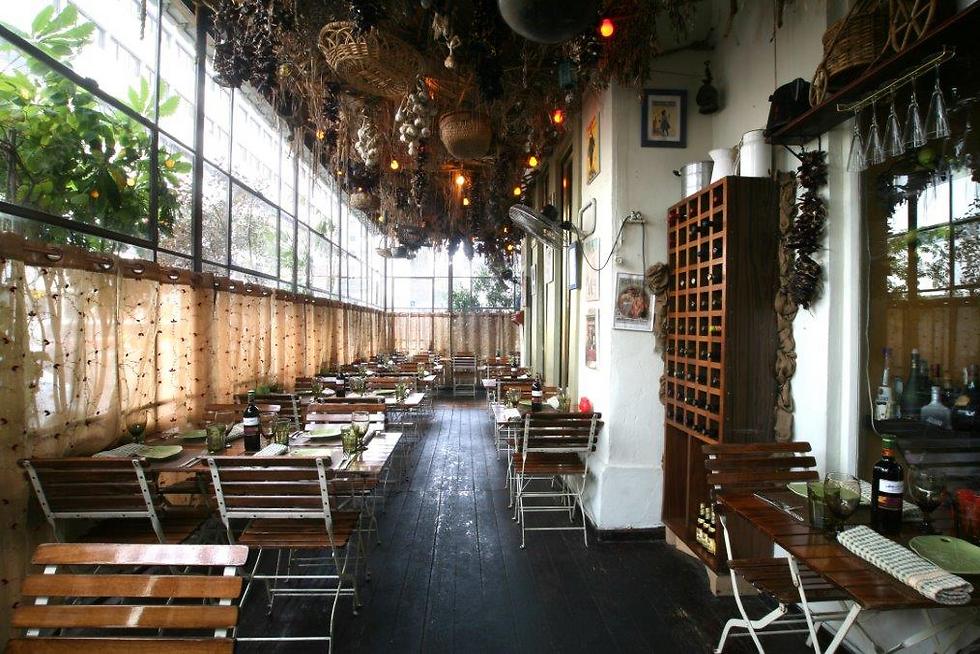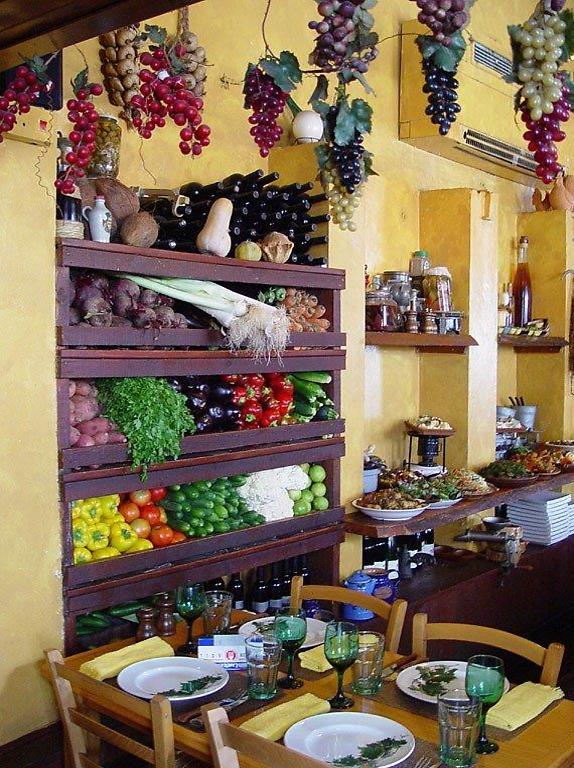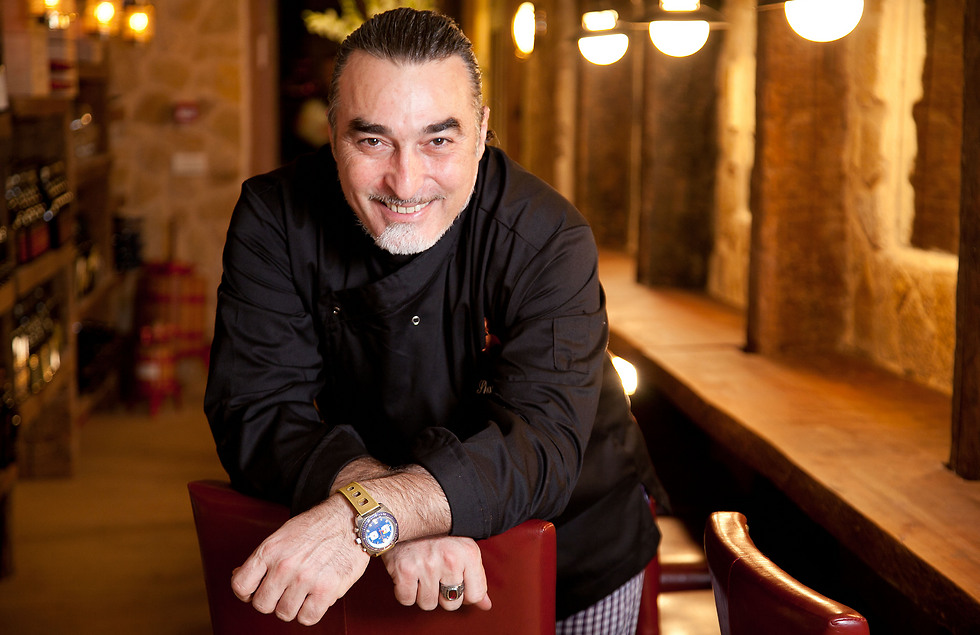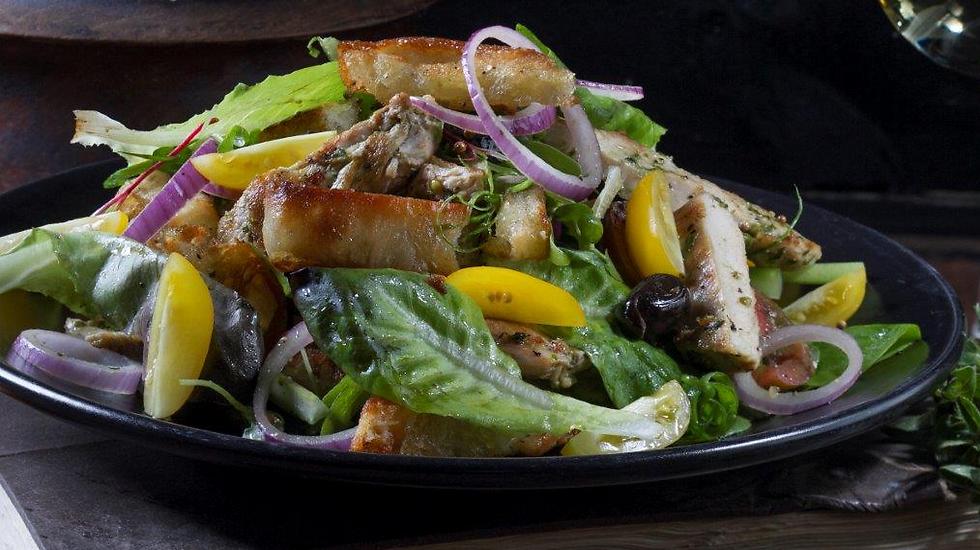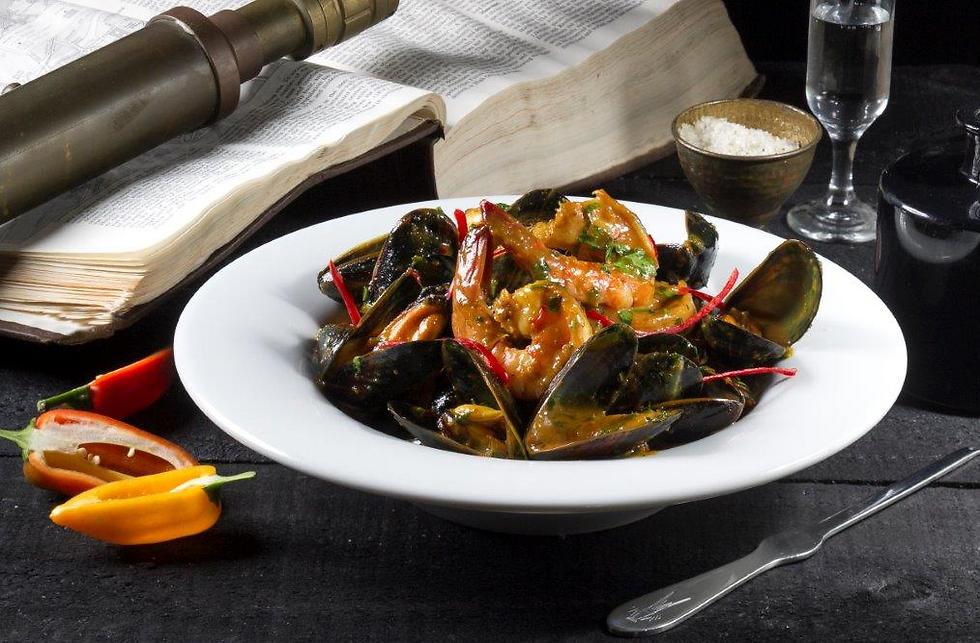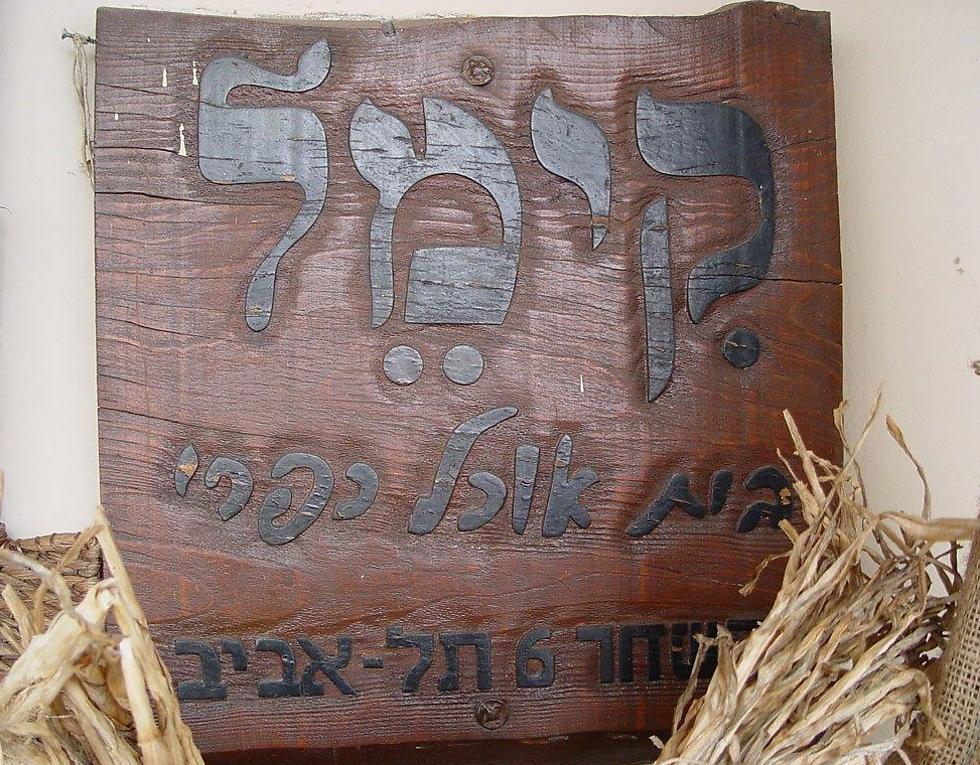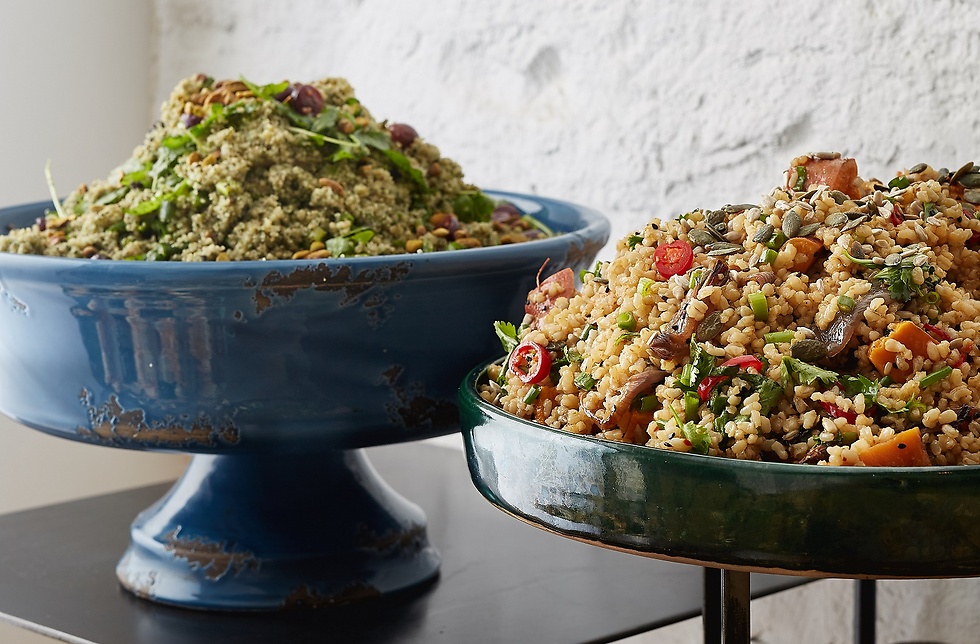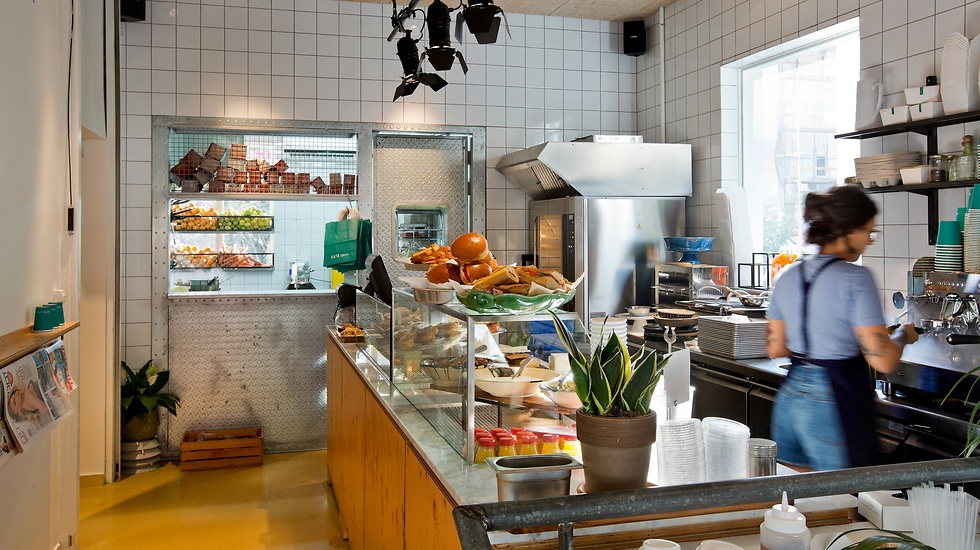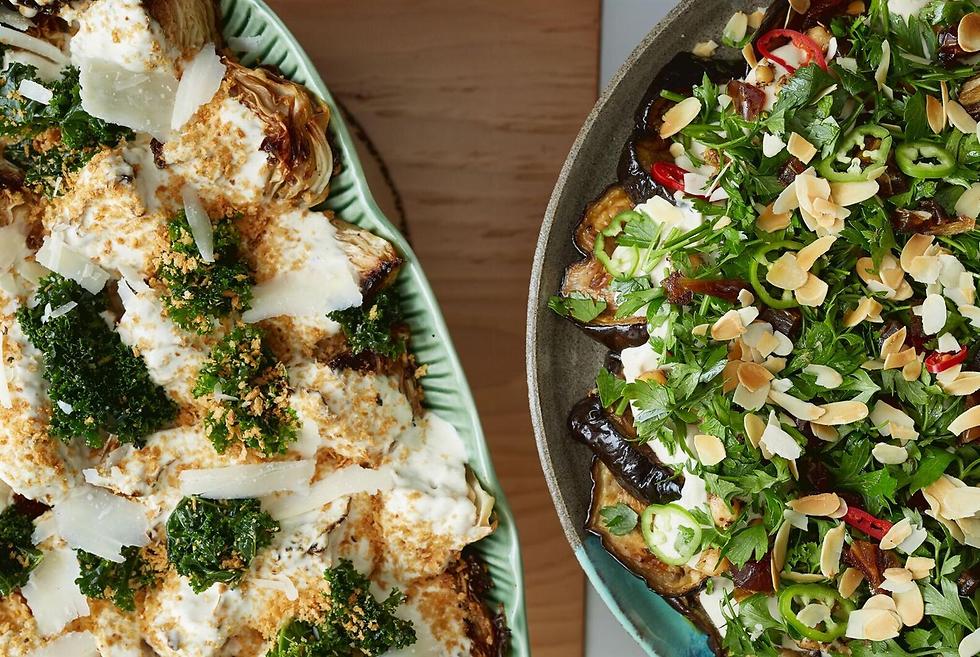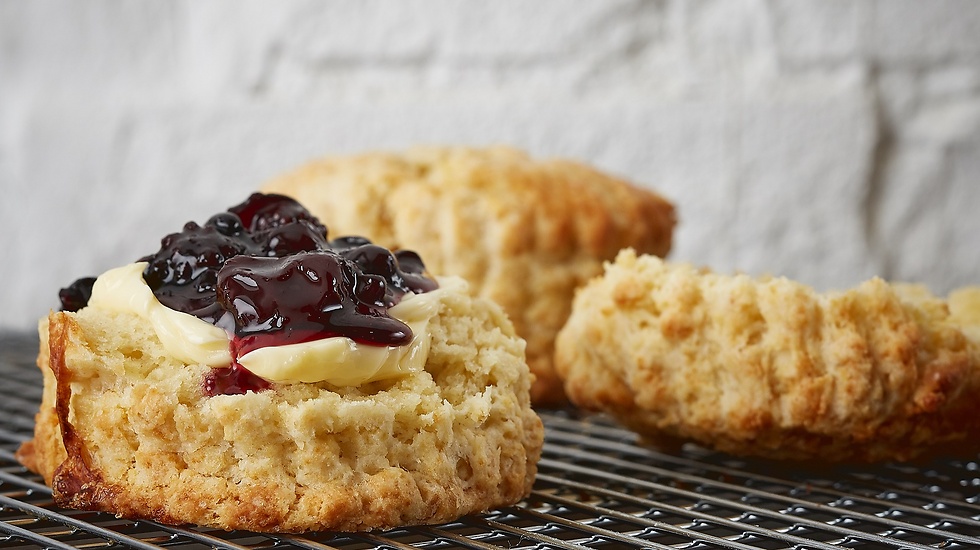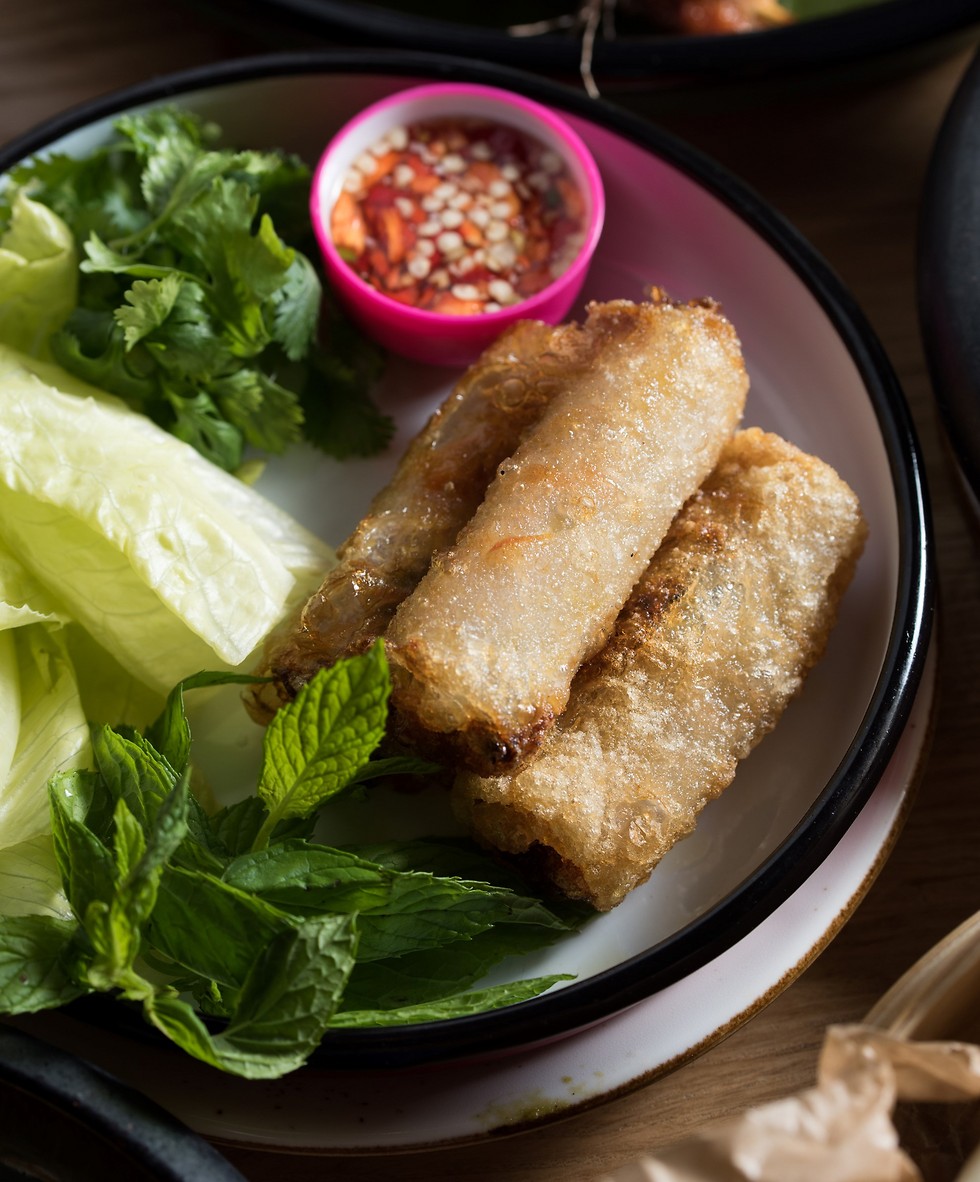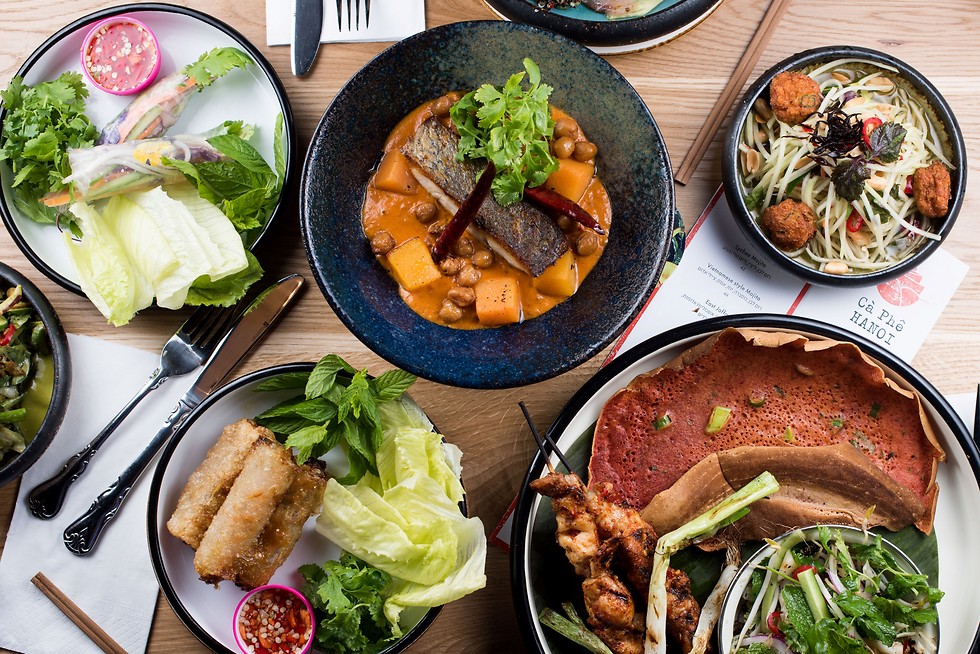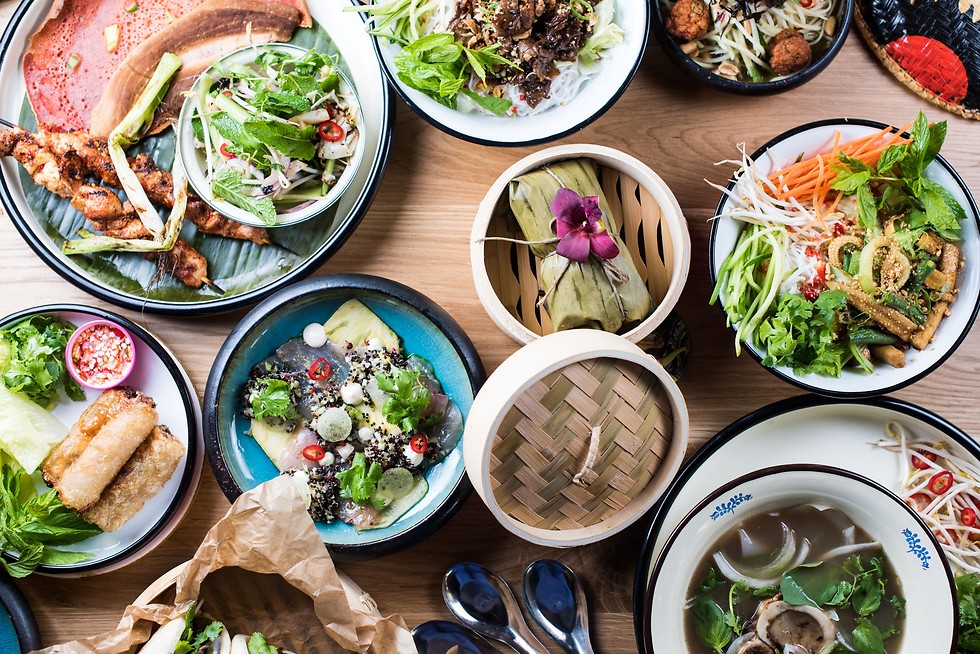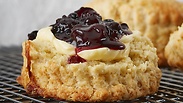
The cycle of life: Restaurant edition
Review: One iconic restaurant closes, while two new ones open; we bid a fond farewell to Shaul Ben Aderet’s Kimmel, and welcome EATS and Ca Phe Hanoi in Tel Aviv.
Fans of fine dining in Tel Aviv received some bad news this summer, with the announcement of the closure of Kimmel, the restaurant founded by Chef Shaul Ben Aderet 25 years ago. After 2.5 decades, Ben Aderet announced, “Not everything in life is about money...body and soul are tired—it’s time to go home.”
Acknowledging how difficult it was to make the decision, Ben Aderet, now 52, did not rule out the possibility he might reopen the restaurant one day. But he emphasized that even without Kimmel, he will be staying busy, owning three other restaurants—The Blue Rooster, Mr. and Mrs. Lee, and Kimmel BaGilboa—in addition to catering and other projects.
For all the years of its existence, Kimmel was located in the same distinctive house in the shadow of the Shalom Tower, its decor reflecting the restaurant’s cuisine: rustic. There was also a pleasant al fresco area on the shaded verandah.
The address was not the only thing that did not change: the menu rarely did either. According to Ben Aderet, “80 percent of the menu has remained the same since day one.”
A good place to start a meal was with the house focaccia, served piping hot with soft European butter studded with Kimmel’s signature caraway seeds. It is difficult not to fill up on the bread.
There were no specialty cocktails, but there was a full bar, and an excellent international wine list. None of the wines were available by glass, although there were half-bottles.
The menu featured three large soups: bouillabaisse, classic French onion soup, and a goulash stew. The bouillabaisse was a generous bowl full of crab, shrimp, and morsels of salmon, flavored optionally with Pernod—a hearty and satisfying dish.
There were two salads: a country salad with goat cheese and peanuts, and a beet salad with pine nuts and St. Maure cheese. The latter—finely diced beets with crunchy nuts and zesty cheese, dressed in a nicely balanced balanced balsamic vinaigrette—represented a terrific interplay of flavors and textures.
One of the house specialties was the chicken liver pâté with Calvados and spiced carrot jam. The rich pâté paired with the sweet jam is an exquisite combination—country cooking at its finest.
There were limited vegetarian options, all pasta dishes. The beet tortellini with walnuts and Roquefort cheese was especially savory.
The main courses included some poultry, but the emphasis was on lamb, beef and fish and seafood. The hanger steak in a pepper cream sauce was a succulent cut of beef, served with a bone oozing with flavorful marrow.
One of the most difficult choices of our visit was deciding among the three tantalizing variations of filet mignon. The two medallions of tender filet encrusted in a caramelized honey mustard sauce were grilled perfectly, and perched on a piquant curry sauce that enhanced the beef without overwhelming it.
The dessert selection presented us with another tough choice, so our waiter chimed in with his recommendation: the lotus crunch, based on the famous biscotti of the same name. It was a superb finale to a memorable meal.
In case anyone is wondering why there is such a long review of a restaurant that is closed, the answer is very simple: the Kimmel menu lives on in its sister restaurant, Kimmel BaGilboa, in the Galilee. As a Michelin guide might put it, it is worth a trip.
Unfortunately, two other highly regarded Tel Aviv restaurants shut their doors this month as well, both specializing in cuisines that will be hard to replace: Totuma (South American), and Luca e Lino (southern Italian).
EATS: No-frills cafeteria with superb baked goods
A unique community center recently opened in a handsome Bauhaus building on Ben Gurion Boulevard in central Tel Aviv, just blocks from Rabin Square. Yet despite its proximity to the bustling civic and commercial heart of the city, Beit Hannah is squarely in the center of a peaceful residential neighborhood, and quickly becoming part of the fabric of the community.
It is here that the cafeteria EATS has opened up shop, quickly making its mark. The eatery is the brainchild of an Israeli born to American parents, Michal Epstein, a past semi-finalist in the popular television show-cum-competition, Master Chef. It is a good thing for English speakers that she is there, since—apart from the name—there is not a word of English anywhere identifying the food.
This urban cafeteria is strictly no-frills: you collect and pay for your food at the counter, then grab some cutlery and take it all to simple tables on an outside patio. The chairs—mostly stools, actually—are also very basic. It is not a place to linger over a leisurely meal.
Nevertheless, the place is worth a visit, especially if you are looking to beat the high cost of eating out. The restaurant’s mission is to provide healthful food from the freshest ingredients—organically sourced, when possible—at affordable prices.
“We try to price each item a few shekels cheaper than the competition,” says manager Yonatan. “The savings add up.”
Fortunately, the economy does not come at the expense of either quantity or flavor.
According to Epstein, the most popular dish is “the Lunchbox”—four salads, comprising vegetables and grains, served all together in one cardboard container. While I was dubious about the presentation at first, I discovered that the jumble melded well together, while each salad retained its bold, original flavor.
In addition, EATS excels on the bakery side of things. Each day, there is a tempting selection of freshly baked cakes, cookies, muffins, and—best of all—scones. It is not easy to find scones in Israel, much less creations as good as these. And the variety, not to mention the creativity, is stunning, encompassing both savory and sweet. The heavenly maple-bacon scone was a rare treat indeed. (Warning: Scones often sell out by midday.)
In addition to salads and baked goods, EATS serves distinctive sandwiches and paninis, tavshilim (stews), and desserts. The restaurant is open all day, 7 days a week (half-days on Fridays), with plans for weekend brunch in the future.
EATS
Not kosher
Shderot Ben Gurion 75, Tel Aviv
Tel. (03) 602-7888
Behind the red door: Ca Phé Hanoi
Red is considered a lucky color in much of Asia, so Ca Phé Hanoi, the newest Vietnamese restaurant in town, is employing it in its décor -- in the form of a large, striking red door marking its entrance. And since the door faces onto Rabin Square, it has made quite a splash, contributing to the buzz already surrounding the trendy bar-restaurant.The emphasis at Ca Phé Hanoi is as much on cocktails as on the food, as might be expected from proprietors who also own two of Tel Aviv’s most popular bars, Double Standard and Spicehouse.
Among the creative and refreshing cocktails on offer are the Hanoitini—a tart and spicy blend of gin, yuzu, kaffir lime, jasmine tea, lemongrass and Szechuan pepper—and the sweeter Lychee Martini, combining rum, lychee, mint, lime and soda.
There are quite a few non-alcoholic cocktails as well, made with cold-pressed fresh fruits and herbs—such as apple, pineapple and basil—plus Asian-inspired drinks, like coconut water and macha.
The cuisine at Ca Phé Hanoi is French-Vietnamese fusion, modified to appeal to the Israeli palate. Chef Nofar Zohar, who trained with leading chef Meir Adoni at Catit and Mizlala, crafted the menu after traveling to Paris for six weeks in order to hone her interpretation of Vietnamese-Mediterranean cuisine, using Israeli and authentic Asian ingredients.
The restaurant’s flagship dishes are the Bo Bun salads, which combine noodles and vegetables with a substantial protein—tofu, fish, meat or chicken—and toss them together in a tangy Vietnamese dressing. Like its counterpart Pho Bo, the classic noodle soup that contains many of these same ingredients, both dishes are hearty, flavorful meals-in-a-bowl.
The Beef Tartare—recommended by our waitress—was an unexpected surprise on the menu: a generous patty of ground raw beef deftly, seasoned with just the right amount of herbs and spices, and topped with a raw egg yolk. This version, with an Asian twist, was as good any I have tasted in fine French restaurants.
The chef herself recommended the desert: Long bai soup—lychees and pineapple floating in a chilled broth of lotus flowers and green tea, together with tapioca pearls, exotic spices and aloe vera-coconut gelatin. The cold concoction—light, sweet and fruity—was a delicious ending to the meal, and ideal on a summer’s eve.
Ca Phé Hanoi, open only weekday evenings, has a night-life vibe—while at the same serving kosher food, a first for a Vietnamese restaurant in Tel Aviv.
Ca Phé Hanoi
Kosher
Malkhei Yisra'el St. 3,Tel Aviv
Tel. (03) 677-1184










